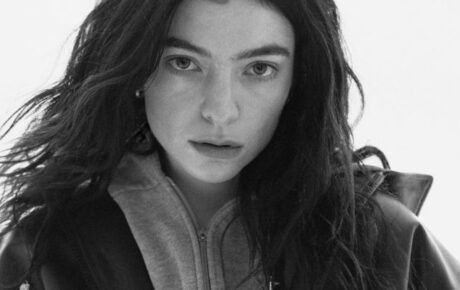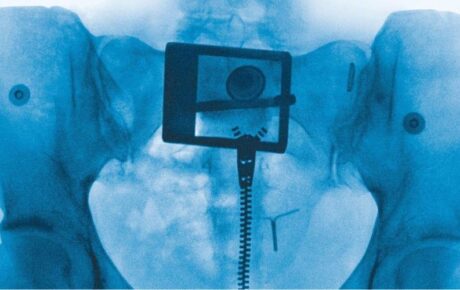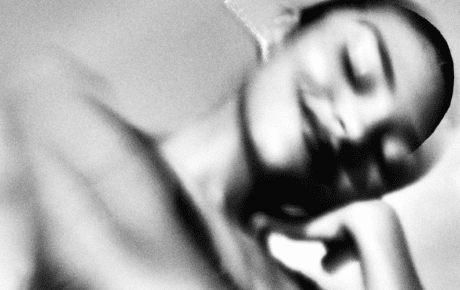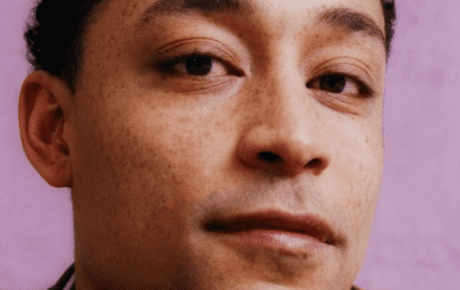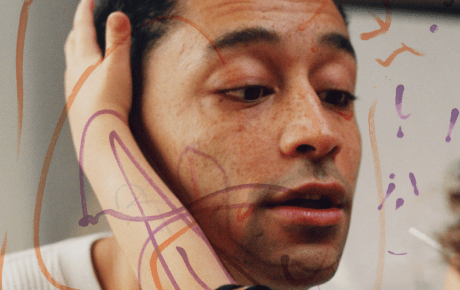U2 are one of the most important bands to come out of Dublin, Ireland, ever. The band formed in 1976 under the name Feedback, and in 1978 become The Hype, then finally somewhere before 1980 the boys Bono, The Edge, Adam Clayton and Larry Mullen Jr. become U2. The four of them met at Mount Temple Comprehensive School and had limited musical proficiency. The band was formed when the members were teenaged pupils of the school. Within four years, they were signed with Island Records and released their debut album, Boy.
To celebrate their latest release Songs Of Surrender, we take a look at the iconic discography of studio albums from U2.
Boy (1980)
The debut studio album Boy was produced by Steve Lillywhite and was released on 20 October 1980. Containing songs from the band’s 40-song strong repertoire at the time, including two tracks that were re-recorded from their debut EP Three, Boy was the first in a trilogy of albums with October and War following shortly after.
With the band members still inexperienced at that point, Lillywhite speculated that he had more influence over the sound of Boy than any other producer of any other U2 album. He employed a creative and experimental approach as the producer, recording smashed bottles and silverware skimmed against a spinning bicycle wheel for sound effects. The band found him to be very encouraging; lead vocalist Bono called him “such a breath of fresh air”, while guitarist the Edge said he “had a great way of pulling the best out of everybody.”
The album’s theme is the psychological nature of the transition of adolescence from childhood to manhood, with lyrics and atmospheric music examining a dawn of sexuality with ‘An Cat Dubh’, the entry into adolescence with ‘Twilight’, mortality shown on ‘Out of Control’, the exile from one’s past enforced by the passage of time on ’Into the Heart’, mental disturbance in ‘The Electric Co.’ and youthful ambition of ‘The Ocean’. The single ‘I Will Follow’ focused on the trauma of the early death of Bono’s mother when he was just 14 years old.
Boy received generally positive reviews at the time. The album peaked on the UK chart at number 52 in August 1981 and in the US at number 63 and was followed by the band’s first tour of continental Europe and the US under the Boy Tour. In 2003, Boy was ranked 417th on Rolling Stone ‘s list of ‘The 500 Greatest Albums of all Time’. In 2008, a remastered edition of the record was released. While some critics have been less impressed by the album in retrospect, it remains an ambitious debut from the band.
October (1981)
The follow up sophomore album October was released on 12 October 1981. After completing the third leg of the Boy Tour in February 1981, U2 began to write new material for October and just as they did for Boy, they recorded at Windmill Lane Studios with Lillywhite producing.
The album was preceded by the lead single ‘Fire’ in July 1981, while its second single, ‘Gloria’, coincided with its release. Bono said of the recording process, “I remember the pressure it was made under, I remember writing lyrics on the microphone, and at £50 an hour, that’s quite a pressure. Lillywhite was pacing up and down the studio… he coped really well. And the ironic thing about October is that there’s a sort of peace about the album, even though it was recorded under that pressure.”
October was the start of U2’s vision of the music video as an integral part of the band’s creative work, as it was released during a time that MTV was first becoming as popular as radio. The video for ‘Gloria’ was directed by Meiert Avis and shot in the Canal Basin in Dublin.
Often seen as the weakest of the Lillywhite trilogy for many varying reasons, the record placed an emphasis on religion and spirituality, particularly in the songs ‘Gloria’ (featuring a Latin chorus of “Gloria, in te domine”), ‘With a Shout (Jerusalem)’, and ‘Tomorrow’. About the album, Bono declared in 2005, “Can you imagine your second album, the difficult second album, it’s about God? Influences primarily were Joy Division and Invisible Girls. A great example of how you can write a song and not know what you’re writing about. A song called ‘Tomorrow’ is a detailed account of my mother’s funeral. But I had no idea when I was writing it.”
The album was released to mixed reviews. It reached number 11 in the UK album charts, and reached number 104 in the US charts. Today it is considered by many to be one of U2’s weaker albums but I completely disagree, they come way later in the catalogue. A number of the songs were known from live performances including ‘Speed of Life’, ‘Pete the Chop’, ‘False Prophet’ and ‘Father is an Elephant’, but other songs have never materialized such as ‘Cars and Aeroplanes’, ‘Shelter from the Storms’, ‘Buzz’ and ‘Love is a Word.’
War (1983)
To round out Lillywhite’s trilogy is the third studio album War. U2 recorded the album from September–November 1982 once again at Windmill Lane Studio, the group’s third consecutive album made with this formula. While the central themes of U2’s previous albums Boy and October were adolescence and spirituality, respectively, War focused on both the physical aspects of warfare, and the emotional after-effects.
Musically, it is also harsher than the band’s previous releases. The album’s opener, ‘Sunday Bloody Sunday’, an ardent protest song, stems from a guitar riff and lyric written by the Edge in 1982. Following an argument with his girlfriend, and a period of doubt in his own song-writing abilities, the Edge, “feeling depressed… channelled [his] fear and frustration and self-loathing into a piece of music.”
Other notable tracks on the album are songs like ‘Seconds’, a song about nuclear proliferation, and the possibility that Armageddon could occur by an accident. The Edge sings the first two stanzas, making it one of the rare occasions on which he sings lead vocals. In continuing the political motif of the album, ‘New Year’s Day’ is about the Polish solidarity movement. The song remains a staple of the band’s live set, and is their third-most frequently performed song. In January 1983, ‘New Year’s Day’ was released internationally as the album’s lead single, reaching top ten in the UK, and was the first release by the band to chart on the Billboard Hot 100.
In support of the War album, the War Tour began on 26 February 1983 and lasted until 30 November of that year. In total, the band played 110 gigs in Europe, the US, and Japan to progressively larger venues, moving from clubs to halls to arenas. Bono attempted to engage the growing audiences with theatrical, often dangerous antics, climbing scaffoldings and lighting rigs and jumping into the audience. The group also established a new tradition by closing concerts with “40”, during which the Edge and Clayton would switch instruments and the band members would leave the stage one-by-one as the crowd continued to sing the refrain “How long to sing this song?” The War Tour was U2’s first profitable tour, grossing about $2 million.
The Unforgettable Fire (1984)
The Unforgettable Fire, released 1 October 1984, was the fourth studio album and a major redirection of U2’s sound. Brian Eno and Daniel Lanois took dual producer duties for the recording sessions at Slane Castle, where the band lived, wrote, and recorded to find new inspiration.
The album features atmospheric sounds and lyrics that Bono describes as “sketches.” Eno, who worked on a more “executive schedule” than other members of the creative team, was focused on creative ideas and conceptual aspects, while Lanois handled the production duties. Eno was glad that the group began the sessions with only rough sketches of songs, as he was more interested in encouraging experimentation and improvisation than refining their ideas. The Edge was encouraged by Eno to think of the studio as an instrument and to expand the range of his guitar tones, resulting in experiments with his equipment and guitar playing techniques.
The album’s lyrics are open to many interpretations, which alongside its atmospheric sounds, provide what the band often called a “very visual feel”. Bono had recently been immersing himself in fiction, philosophy and poetry, and came to realise that his song writing mission was a poetic one. He felt songs like ‘Bad’ and ‘Pride (In the Name of Love)’ were best left as incomplete “sketches”, and he said that The Unforgettable Fire was a “beautifully out-of-focus record, blurred like an impressionist painting, very unlike a billboard or an advertising slogan.”
Upon its release, reviews were generally favourable. In March 1985, a Rolling Stone cover story called U2 the “Band of the 80’s,” saying that “for a growing number of rock-and-roll fans, U2 had become the band that mattered most, maybe even the only band that matters.” In July 1985, the band participated in the Live Aid benefit concert at Wembley Stadium and their performance was one of the show’s most memorable. All of U2’s previous albums returned to the charts in the UK after their performance and the adulation that followed set the scene for the band’s greatest album to date.
The Joshua Tree (1987)
The Joshua Tree is the fifth studio album from U2. It was also produced by Daniel Lanois and Brian Eno and was released on 9 March 1987. In contrast to the ambient experimentation of The Unforgettable Fire, the band aimed for a harder-hitting sound within the limitation of conventional song structures on The Joshua Tree. The album is influenced by American and Irish roots music, and through socio-politically conscious lyrics embellished with spiritual imagery, it contrasts the group’s antipathy for the “real America” with their fascination with the “mythical America.”
Following a humanitarian visit to Egypt and Ethiopia with his wife Ali, Bono said, “Spending time in Africa and seeing people in the pits of poverty, I still saw a very strong spirit in the people, a richness of spirit I didn’t see when I came home. Instead, I saw the spoiled child of the Western world. I started thinking, they may have a physical desert, but we’ve got other kinds of deserts, and that’s what attracted me to the desert as a symbol of some sort.”
On 3 July 1986, the band experienced a tragedy when Greg Carroll, their roadie and Bono’s personal assistant, was killed in a motorcycle accident in Dublin. The 26-year-old’s death overwhelmed the U2 organisation, and the band travelled to his native New Zealand to attend his Tangi. The experience then inspired the lyrics to the fan-favourite ‘One Tree Hill,’ a track that reached number one in New Zealand in 1987.
The Joshua Tree was the first new release to be made available on CD, vinyl, and cassette tape formats on the same date. Record stores in Britain and Ireland opened at midnight to accommodate the large number of fans who had queued outside to buy the album. ‘With or Without You’ was released as the lead single on 21 March 1987 and quickly topped the Billboard Hot 100, becoming the band’s first number-one hit in America. Like its predecessor, second single ‘I Still Haven’t Found What I’m Looking For’ topped the Billboard Hot 100 and was followed by ‘Where the Streets Have No Name’, giving U2 consecutive number-one singles in the US.
The album received critical acclaim, and the best reviews of U2’s career to that point. In 1988, the band received four Grammy award nominations for the album and its songs, winning honours for Album of the Year (to beat artists such as Michael Jackson, Prince, and Whitney Houston) and Best Rock Performance by Duo or Group. ‘I Still Haven’t Found What I’m Looking For’ was nominated for Song of the Year and Record of the Year, but lost in both categories. U2 were the only act that year to be nominated in each of the “Big Three” categories (Record of the Year, Song of the Year, and Album of the Year).
Achtung Baby (1991)
The seventh studio album by U2, Achtung Baby, saw both Daniel Lanios and Brian Eno return to producing duties, and was released on 18 November 1991. Seeking inspiration from German reunification, U2 began recording Achtung Baby at Berlin’s Hansa Studios in October 1990. The sessions were fraught with conflict, as the band argued over their musical direction and the quality of their material. After tension and slow progress nearly prompted the group to disband, they made a breakthrough with the improvised writing of the song ‘One.’
To confound the public’s expectations of the band and their music, U2 chose the record’s facetious title and colourful multi-image sleeve. Going into the album sessions, U2 wanted the record to completely deviate from their past work, but they were unsure how to achieve this. The Edge had been listening to electronic dance music and industrial bands like Einstürzende Neubauten, Nine Inch Nails, the Young Gods, and KMFDM, and he and Bono advocated new musical directions along these lines.
The band referred to the album’s musical departure as “the sound of four men chopping down The Joshua Tree”. For the album, the Edge often eschewed his normally minimalistic approach to guitar playing and his trademark chiming, delay-heavy sound, in favour of a style that incorporated more solos, dissonance, and feedback. Industrial influences and guitar effects, particularly distortion, contributed to a “metallic” style and “harder textures.”
The success of Achtung Baby and the Zoo TV Tour re-established U2 as one of the most popular and critically acclaimed musical acts in the world. The group nearly swept Rolling Stone‘s 1992 end-of-year readers’ polls, winning honours for “Best Single” (“One”), “Artist of the Year”, “Best Album”, “Best Songwriter” (Bono), “Best Album Cover”, and “Comeback of the Year”, among others. For the band, Achtung Baby was a watershed that secured their creative future, and its success led to the group’s continued musical experimentation during the 1990s.
Zooropa (1993)
The eight studio album from U2 is Zooropa. The album marks the beginning of a very different era for U2 throughout the rest of the 90s. It was a further departure for the band, incorporating additional dance music influences and electronic effects into their sound. Produced by Flood, Brian Eno, and the Edge, it was released on 5 July 1993.
Inspired by the band’s experiences on the Zoo TV Tour, Zooropa expanded on many of the tour’s themes of technology and media oversaturation. Songs originated from and were inspired by a variety of sources. The verse melody to ‘Stay (Faraway, So Close!) and an instrumental backing track that became ‘Numb’ were originally from the Achtung Baby sessions. Legendary country singer Johnny Cash recorded vocals for ‘The Wanderer’ during a visit to Dublin and although Bono recorded his own vocals for the song, he preferred Cash’s version. In the final weeks, the band decided to exclude the traditional rock songs and guitar-driven tracks they had written in favour of an “album of disjointed, experimental pop”. The Edge received a production credit; his first on a U2 record. With an even more “European” musical aesthetic than Achtung Baby, Zooropa is a further departure from the group’s “rootsy” sound of the late 1980s.
The name Zooropa is a portmanteau of “zoo” (from Zoo TV Tour and ‘Zoo Station’) and “Europa”. The final commercial single was ‘Stay (Faraway, So Close!)’, released worldwide on 22 November 1993. It was the album’s most successful single, topping the Irish Singles Chart and peaking at number five in Australia, number six in New Zealand, number four in the UK, and number 61 in the US, making it the record’s only single to chart on the UK Singles Chart and US Hot 100.
The album performed very well commercially, debuting at number one in the United States. After its release, David Bowie praised the band, writing, “[U2] might be all shamrocks and deutsche marks to some, but I feel that they are one of the few rock bands even attempting to hint at a world which will continue past the next great wall—the year 2000.”
Although the record was a success, in the years following its release the group have regarded it with mixed feelings and rarely play its material in live performances. Bono said, “I thought of Zooropa at the time as a work of genius. I really thought our pop discipline was matching our experimentation and this was our Sgt. Pepper. I was a little wrong about that. The truth is our pop disciplines were letting us down. We didn’t create hits. We didn’t quite deliver the songs. And what would Sgt. Pepper be without the pop songs?” The Edge said that he did not think the songs were “potent”, further stating, “I never thought of Zooropa as anything more than an interlude… but a great one, as interludes go. By far our most interesting.” Clayton said, “It’s an odd record and a favourite of mine.” In 2005, Bono claimed that Zooropa‘s “Stay (Faraway, So Close!)” is “perhaps the greatest U2 song”.
Pop (1997)
Now we start to move into the more controversial area of the band’s catalogue with the release of U2’s ninth studio album Pop. It was produced by Flood, Howie B, and Steve Osborne, and was released on 3 March 1997.
The album was a continuation of the band’s 1990s musical reinvention, as they incorporated alternative rock, techno, dance, and electronica influences into their sound. Pop employed a variety of production techniques that were relatively new to U2, including sampling, loops, programmed drum machines, and sequencing. Recording sessions began in 1995 with various record producers, including Nellee Hooper, Flood, Howie B, and Osborne, who were introducing the band to various electronica influences. At the time, drummer Mullen Jr. was inactive due to a back injury, prompting the other band members to take different approaches to song writing.
Pop initially received favourable reviews from critics but eventually became viewed in the music press and public as a disappointment. Following the PopMart Tour, the band expressed their dissatisfaction with the final product. Between the album’s various singles and the band’s The Best of 1990-2000 compilation (and disregarding dance remixes and the like), the band has re-recorded, remixed, and rearranged ‘Discothèque’, ‘If God Will Send His Angels’, ‘Staring at the Sun’, ‘Last Night on Earth’, ‘Gone’, and ‘Please’. Bono has also recorded and issued a drastically different studio version of ‘If You Wear That Velvet Dress’ with Jools Holland. Of the record, he states, “Pop never had the chance to be properly finished. It is really the most expensive demo session in the history of music.”
All That You Can’t Leave Behind (2000)
The follow up to this expensive demo tape was U2’s return to form with their tenth studio album All That You Can’t Leave Behind. It was again produced by Brian Eno and Daniel Lanois, and was released on 30 October 2000.
Following the poor reception to Pop and the tour, the band wished to return to song arrangements that consisted almost entirely of guitar, bass, and drums. After U2’s early brief demo sessions, the Edge worked alone on song ideas before the band reunited at Hanover Quays. They recorded with the mentality of a “band in a room playing together”, an approach that led to the album’s more stripped-down sound. Additionally, although the record was described as “a return to the traditional U2 sound”, many songs were complex and retained elements of the band’s 1990s experimentation; The introduction of ‘Beautiful Day’ features an “electronification of the [chorus] chords with a beat box and a string part” and ‘New York’ came together when the band members were away at a meeting and Lanois and Eno were playing around with a drum loop that Mullen had recorded.
The album was preceded by the lead single ‘Beautiful Day’, released on 9 October 2000. It was U2’s fourth number-one single in the UK, their first number one in the Netherlands, and was also number one for a week in Australia. The album debuted at number three on the Billboard 200 chart in the US, selling nearly half a million copies in its first week, and debuted at number one in 32 countries. At the 43rd Annual Grammy Awards in 2001, ‘Beautiful Day’ won Song of the Year, Best Rock Performance by a Duo or Group, and Record of the Year. The following year, ‘Walk On’ won Record of the Year, ‘Elevation’ won Best Rock Performance by a Duo or Group, and ‘Stuck in a Moment You Can’t Get Out Of’ won Best Pop performance by a Duo or Group. The album also won Best Rock Album and was nominated for Album of the Year and became the only album ever to have two singles win Record of the Year in two consecutive years.
How to Dismantle an Atomic Bomb (2004)
How to Dismantle an Atomic Bomb is the eleventh studio album by U2. It was released on 22 November 2004 in the UK and a day later in the US. Much like All You Can’t Leave Behind, the record exhibits a more mainstream rock sound after the band experimented with alternative rock and dance music in the 1990s. Bono described the album as “our first rock album. It’s taken us twenty years or whatever it is, but this is our first rock album.” Thematically, the record touches on life, death, love, war, faith, and family.
Acknowledging that the involvement of multiple producers affected the record’s “sonic cohesion”, the band said of the album “It’s very much a guitar record. ‘Vertigo’, ‘Love and Peace’, ‘City of Blinding Lights’ and ‘All Because of You’ are all pretty up, rocky tunes. A lot of them are a kick-back to our very early days, so it’s like with each year we have gathered a little bit more and this is what we are now.” In 2003, Bono said one of their new songs called ‘Full Metal Jacket’ was “the mother of all rock songs” and “the reason to make a new album”. A similar demo called ‘Native Son’ was also recorded. Both of these demos would later become ‘Vertigo.’
For the album release, U2 partnered with Apple for several cross-promotions. ‘Vertigo’ was featured on a widely aired television advertisement for the company’s iPod and additionally, a special edition U2-branded iPod was released bearing the black and red colour scheme of the album, as well as laser-engraved autographs of each member on the back. How to Dismantle an Atomic Bomb received generally positive reviews from critics and reached number one in 30 countries, including the US, where first-week sales of 840,000 copies nearly doubled the band’s previous personal best. The album and its singles won all nine Grammy awards for which they were nominated (U2 themselves were awarded eight out of the nine). It was also the fourth-highest-selling album of 2004, with almost ten million copies sold, and it yielded several successful singles, such as ‘Vertigo’, ‘City of Blinding Lights’, and ‘Sometimes You Can’t Make It on Your Own”. The album was included on Rolling Stone ‘s list of the “100 Best Albums of the Decade” at number 68.
No Line on the Horizon (2009)
After the success of How to Dismantle An Atomic Bomb and the Vertigo Tour the band then had a four year hiatus. Returning on 27 February 2009, U2 released their twelfth studio album No Line on the Horizon.
U2 began work on a new album in 2006 with record producer Rick Rubin but shelved most of the material from those sessions. Rubin encouraged a “back to basics” approach and wanted the group to bring finished songs to the studio. This approach conflicted with U2’s freeform recording style, by which they improvised material in the studio. Clayton said, “once we have a song, we’re interested in the atmospherics and the tones and the overdubs and the different stuff you can do with it… things that Rick was not in the slightest bit interested in. He was interested in getting it from embryonic stage to a song that could be mixed and put on a record.” The band has expressed interest in revisiting the album in the future.
In May 2007, the group began new sessions with Eno and Lanois in Fez, Morocco, while attending the World Sacred Music Festival. Intending to write “future hymns”—songs that would be played forever—the group spent two weeks recording in a riad, which is a type of traditional Moroccan interior garden or courtyard. The open-air riad allowed the group to hear birdsong, as captured in the introduction to ‘Unknown Caller.’ The exotic musical influences that the group were exposed to in Fez inspired them to pursue a more experimental sound, but as the sessions unfolded, the band decided to scale back the extent of those pursuits. Having grown tired of writing in the first-person, Bono wrote his lyrics from the perspective of different characters.
No Line on the Horizon was nominated in the Best Rock Album category at the 52nd Grammy Awards in 2010. The song ‘I’ll Go Crazy If I Don’t Go Crazy Tonight’ was nominated for Best Rock Duo or Group and Best Rock Song. The cut song ‘Winter’ was nominated for Best Original Song at the 67th Golden Globe Awards for its role in the film Brothers. No Line on the Horizon opened with strong sales, debuting at number one in thirty countries and globally it was the seventh-highest-selling album of 2009.
Regarding the lack of commercial appeal, Bono said, “We weren’t really in that mindset. We felt that the ‘album’ is almost an extinct species, and we [tried to] create a mood and feeling, and a beginning, middle and an end. And I suppose we’ve made a work that is a bit challenging for people who have grown up on a diet of pop stars.” Clayton agreed that the album’s commercial reception must be “challenged” but said, “the more interesting challenge is, ‘What is rock ‘n’ roll in this changing world?’ Because, to some extent, the concept of the music fan—the concept of the person who buys music and listens to music for the pleasure of music itself—is an outdated idea.”
Songs of Innocence (2014)
After the relatively lukewarm commercial performance of No Line On The Horizon, Bono expressed uncertainty about the band’s ability to remain musically relevant. During the five-and-a-half-year gestation period for their next album, the longest gap between albums of their career, the group reportedly worked on several projects with multiple producers before collaborating with Flood, Paul Epworth, and Ryan Tedder to complete their thirteenth studio album Songs of Innocence. released on 9 September 2014.
Rather infamously, the album was automatically added to the “purchased” section of all users’ iTunes music libraries, a move which Apple CEO Tim Cook marketed as “the largest album release of all time.” While U2’s motives were to “get the album to as many people as possible as a free gift” because their band was all about connection, the move resulted in a lot of angry and confused customers and seemingly tarnished U2’s brand.
The album’s title Songs of Innocence, along with that of the group’s 2017 follow-up, Songs of Experience, are taken from William Blake’s collection of poems Songs of Innocence and Experience. Thematically, Songs of Innocence revisits the group members’ youth in Ireland in the 1970s, touching on childhood memories, loves, and losses, while paying tribute to their musical inspirations. Bono described it as “the most personal album we’ve written” and said that he felt challenged to write about more personal themes.
Songs of Experience (2017)
Released on 1 December 2017, Songs of Experience is the fourteenth studio album by U2 and is intended to be a companion piece to Songs of Innocence. Whereas its predecessor explored the group members’ adolescence in Ireland in the 1970s, Songs of Experience thematically is a collection of letters written by Bono to people and places closest to his heart.
Featuring guest appearances from several musical acts, including Haim, Kendrick Lamar, and Lady Gaga, Songs of Experience was first conceived during the Songs of Innocence sessions and initially started with Bono writing songs while recuperating from a serious November 2014 bicycle accident. But after the shift of global politics in a conservative direction in 2016, the Edge said, “we suddenly realised that the world we were about to release it into had changed. So we gave ourselves a moment to reflect if this was a good idea, and concluded it might be better to wait for a minute. To pause, see what was going on in the world, see if the album we had just finished was what we wanted to say.”
According to the Edge, most of the resulting changes to the songs were lyrical and some were very subtle, emphasising or better expressing an idea. The lyrics of Songs of Experience reflect the “political and personal apocalypse” that Bono felt had occurred in his life in 2016, referring to his “brush with mortality” and the global events that occurred around the rise of conservatism. He also borrowed an idea from poet William Blake to compare oneself as an innocent person to who they become through experience. Accordingly, many of the lyrics contain a dialogue between innocence and experience. Musically, the band sought to use “joy as an act of defiance”.
In 2017, Rolling Stone named Songs of Experience the third-best album and ‘Lights of Home’ the fifth-best song of the year. ‘The Blackout’ appeared on The New York times‘ list of the 54 best songs of the year. For the 2018 Billboard Music Awards, it was nominated for Top Rock Album. The album debuted at number one on the US Billboard 200 and became the band’s eighth number-one album in the US, the third-most of any group, and made them the first group to attain number-one albums in the US in the 1980s, 1990s, 2000s, and 2010s. It was also the largest sales week of any rock album in the US in 2017.
Songs of Surrender (2023)
Songs of Experience marks the end of the band’s original material to date. It is widely accepted by the band, the fans and the critics that the last three albums make up a trilogy of disappointment for U2. So where does this leave the band and the fans now? On 17 March 2023, U2 released their first artistic statement in five years. The album Songs of Surrender consist of re-recorded songs by the band and is produced by The Edge.
Largely the effort of the Edge and Bono, the album comprises re-recorded and reinterpreted versions of 40 songs from the group’s back catalogue, many in stripped-down and acoustic arrangements. The album is a companion to Bono’s memoir, Surrender: 40 Songs, One Story published in October 2022, which was structured into 40 chapters titled after U2 songs.
For the re-recordings, the band members decided that they did not need to remain faithful to the original versions of the songs with the Edge stating, “We gave ourselves permission to disregard any sense of reverence for the originals.” While experimenting with new arrangements for the songs, the Edge changed their keys, chords, and rhythms, while Bono often rewrote the lyrics.
On 21 February 2023, the group announced that they had commissioned 40 artists to create 60-second videos to accompany each of the album’s tracks, and that they would be progressively released through a YouTube playlist. The week of the album release, the band announced a “40 songs, 40 cities” promotion, whereby fans could gather at a location in 40 cities worldwide to find a lyrical tribute to the album’s songs, as well as access exclusive merchandise and a bespoke photo filter. To coincide with the album’s 17 March release date, a television special entitled Bono & the Edge: A Kind of Homecoming with David Letterman was released on Disney+. The programme, directed by Morgan Neville, features documentary footage of Bono and the Edge touring their native Dublin with comedian David Letterman, as well as a concert performance at Ambassador Theatre.
SEE ALSO: Bono & The Edge: A Sort of Homecoming, with Dave Letterman
Recently, U2 have become the fifth group with a newly-charting title in the top 10 of the Billboard 200 in the 1980s, 1990s, 2000s, 2010s, and 2020s, joining AC/DC, Def Leppard, and Metallica. The band has seen its challenges over the last two decades, I would never count U2 as a creative force, as being spent. It would be fantastic to see the band return to Windmill Lane Studios and reinvent the magic they often create and do it as the elder statesmen of rock and roll that they are. In a recent interview with Zane Lowe of Apple Music Bono said, “There is only one thing I need to do and that is make music.”
He then goes on to share the following message with his fans, “I apologise for having the unreasonableness of youth, as I enter my 60’s; I apologise for being a singer who will get in your face no matter what direction you are looking; I apologise for not being shy or retiring and for loudly giving thanks for where I go to work; I apologise for stretching our band to its elastic limit; I apologise for making an unreasonable guitar record that rattles my cage and others; I apologise for repeating over and over that rock n’ roll is not dead but it’s just older and grumpier and occasionally makes fireworks out of its mood changes, but most of all I apologise for apologising.”
As a fan for 38 years, no apologies necessary. I have nothing but admiration and respect for U2 and their music. The pressing question the band leaves their fans is the same conclusion of many of their concerts, with the crowd chanting “How long… to sing this song… how long…”
U2’s latest offering Songs of Surrender is available on all platforms now.



